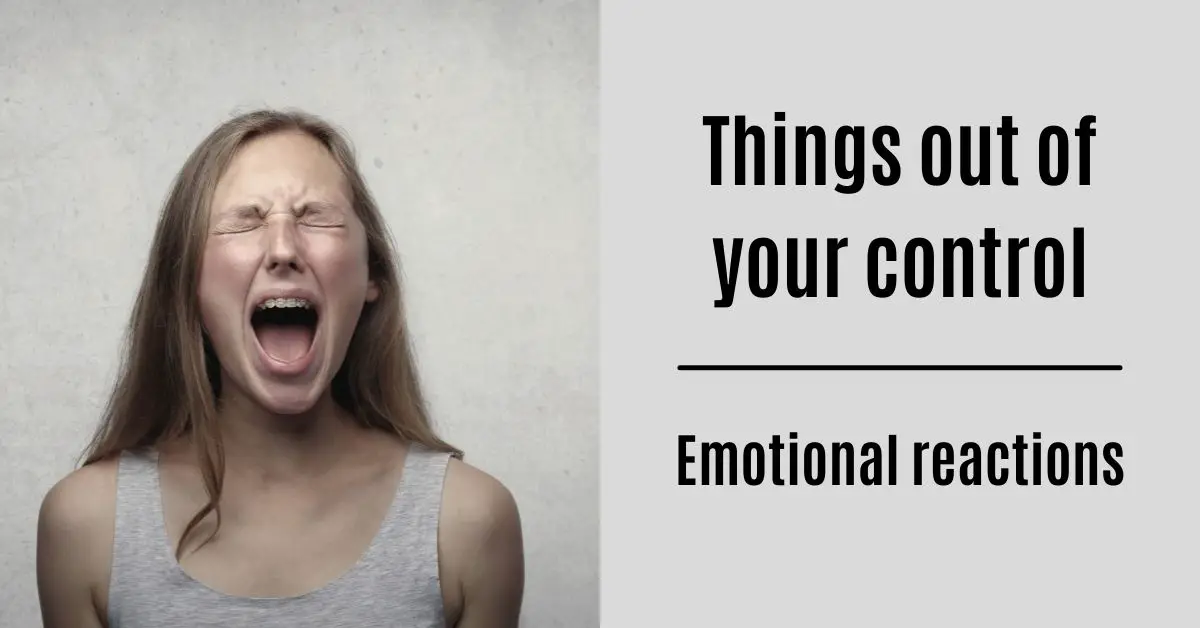This post marks the first in a new series titled “Things out your control”. A lot of us give so much of our time and energy trying to control things that we can’t, leaving us feeling stressed and dissatisfied. In this post, we’re going to talk specifically about our emotional reaction to life. We’ll talk about why it’s out of our control and what we should do about it. Let’s discuss.
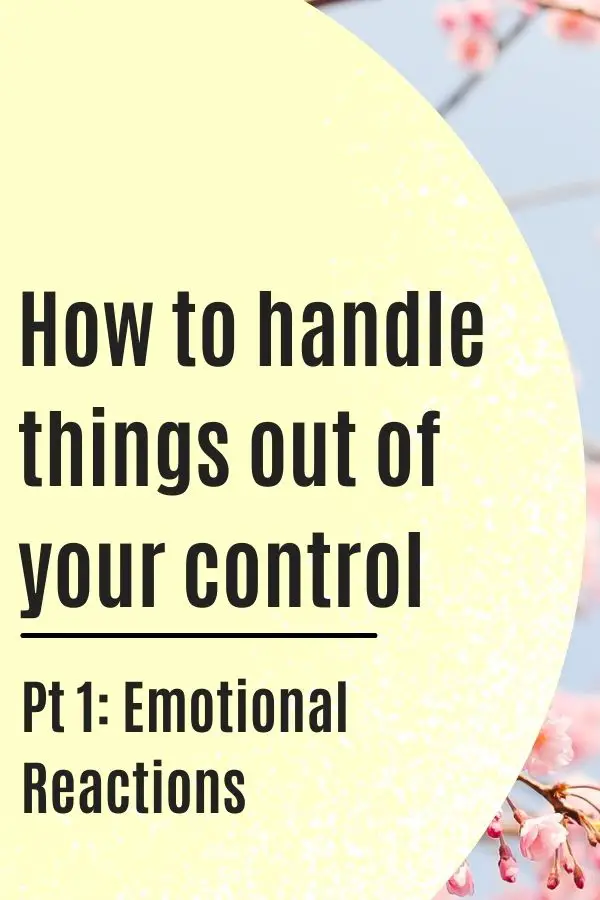
Table of Contents
Stoicism and our emotions
As I mentioned in earlier posts, I’ve been doing a lot of readings into the philosophy of Stoicism to help shift my perspective on things we can control. Ryan Holiday, author of the Daily Stoic states that:
“Our reaction is what actually decides whether harm has occurred. If we feel that we’ve been wronged and get angry, of course that’s how it will seem. If we raise our voice because we feel we’re being confronted, naturally a confrontation will ensue. But if we retain control of ourselves, we decide whether to label something good or bad. In fact, if that same event happened to us at different points in our lifetime, we might have very different reactions. So why not choose now to not apply these labels? Why not choose not to react?”
Ryan Holiday, Daily Stoic.
Initially, I took that to mean that to be a Stoic, we had to be completely emotionless in the face of stressful life events. I thought that this might be the way to live a peaceful life. Little did I know how impossible the task I set for myself was.
Every time someone wronged me, I would try my best to control my reaction but anger, pride, spite would burst out of me. I believed myself to be a lost cause because no matter how hard I tried, I could never control my emotions.
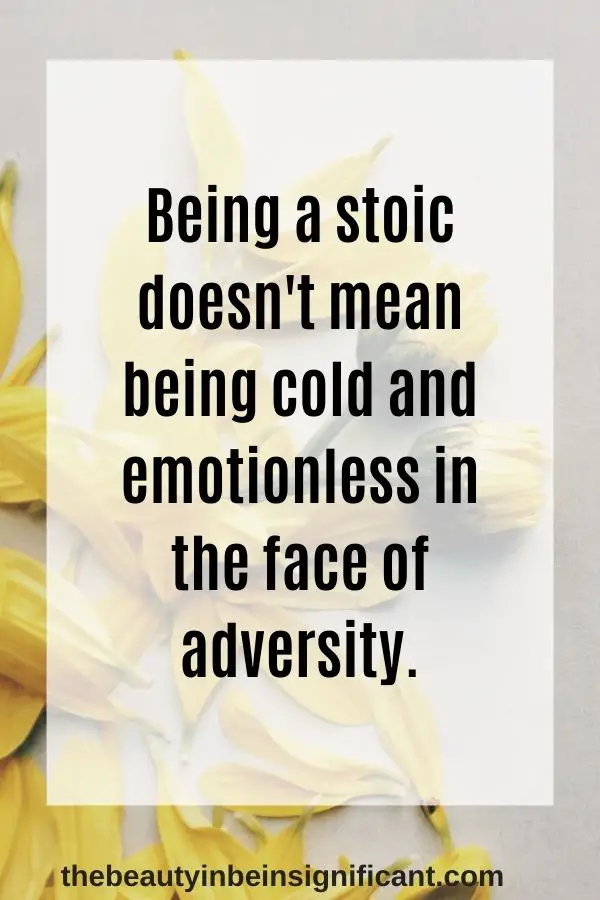
Our first emotional response
After a few weeks of me giving up, I decided to give things another try. So, I went back to hit the Stoic books to learn all I could about emotional control. Upon diving deeper, I finally realised how wrong I was. Contrary to what I thought, I found that the Stoics were actually firm believers that emotional reactions were outside of our control.
This confused me for a while until I started thinking about our emotional experience as two separate events. We have our initial emotional reaction. Think about when you put your hand on a hot stove or when it grazes an iron, you don’t think about what your reaction should be, you simply react and move your hand out of the way. Well, the same logic applies to our emotions during tense situations.
When we feel threatened in social situations, a region in our brain called the amygdala automatically activates our fight or flight response, sending stress hormones to our body. Research has now shown that these hormones can then activate the aggression regions of our brain which can cause us to be more defensive during conversations.
All of this is happening within the first minute of encountering the stressful event, and as much as it pains me to say, it’s all out of your control. But don’t lose hope because we have the second emotional experience to look forward to.
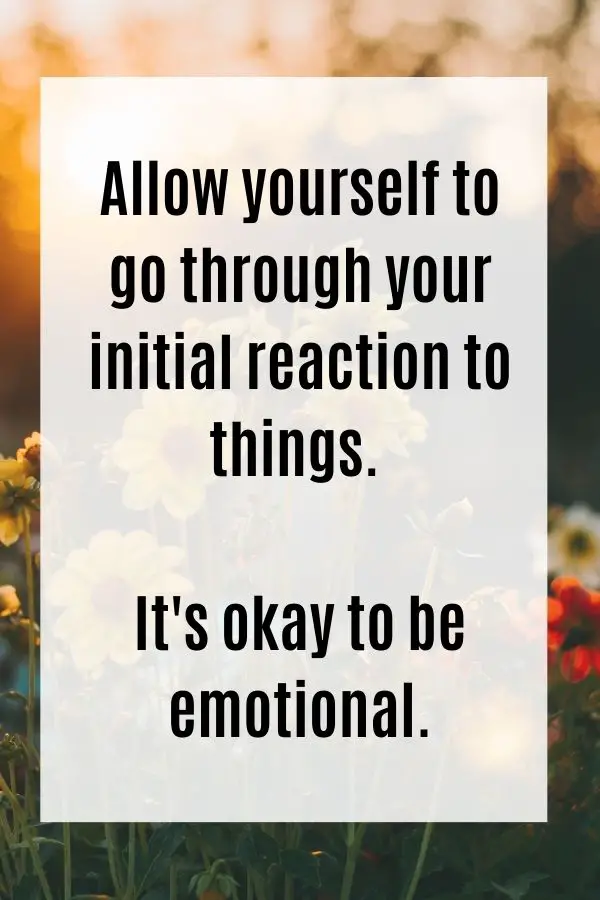
Our secondary emotional response
Eventually, our stress response settles down and these stress hormones return back to baseline levels. At this point, we’re more in control of our emotions, and there is a choice to be made. Either you CHOOSE to remain hurt reliving the experience repeatedly in your head, replaying every argument and counter-argument. But but warned, every time you do this, you’re risking re-activating your initial first response.
Your second option is that you can choose to regain control of your secondary emotional response and CHOOSE not to be hurt. I know. I know. It’s easier said than done but from personal experience, I know that it can be done.
For so long, I chose to be hurt by something a friend did to me years back. Most probably, they have forgotten all about the event but I held on to it, refusing to let it go. Each time I’d remember the past events, my blood would boil and I would be filled with so much rage. However, this was my choice. It was my choice to hold on to it, and when I realised that I had that power, I realized that I also had the power to let it go. And when I did, it was the most freeing experience that I’ve ever had.
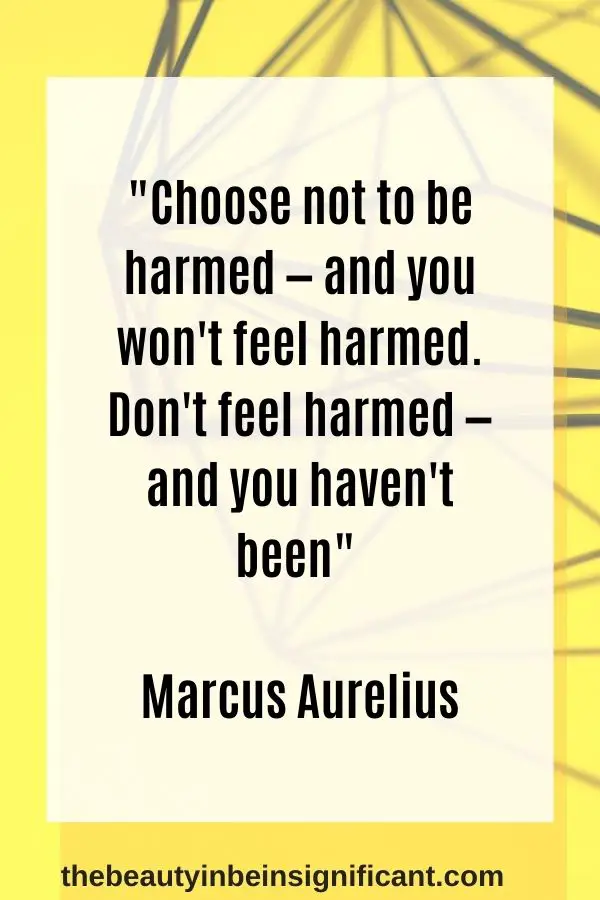
Concluding thoughts
When something upsets you, don’t try to control your initial reaction. It’s pretty much impossible and all you’re going to do is end up feeling guilty about not being able to do it. Instead, let the emotions flow through you. If you want to scream, then scream. If crying feels more appropriate at the moment then cry away. You’re human. It’s absolutely okay to have emotions other than happiness. However, the more time passes the more control over the situation you will have. When you’re ready, take control back over your emotions and centre yourself. I believe that’s what makes a true Stoic powerful.
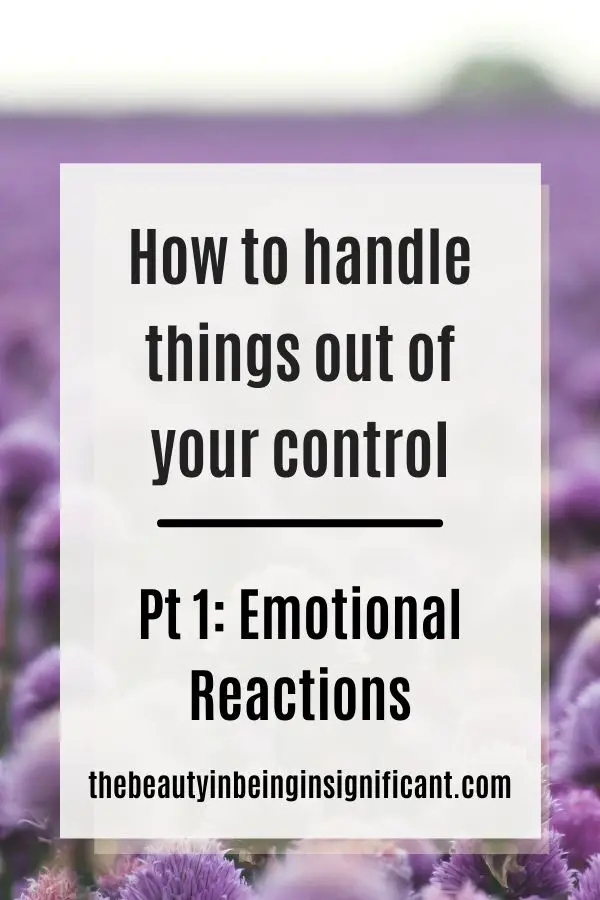
.
